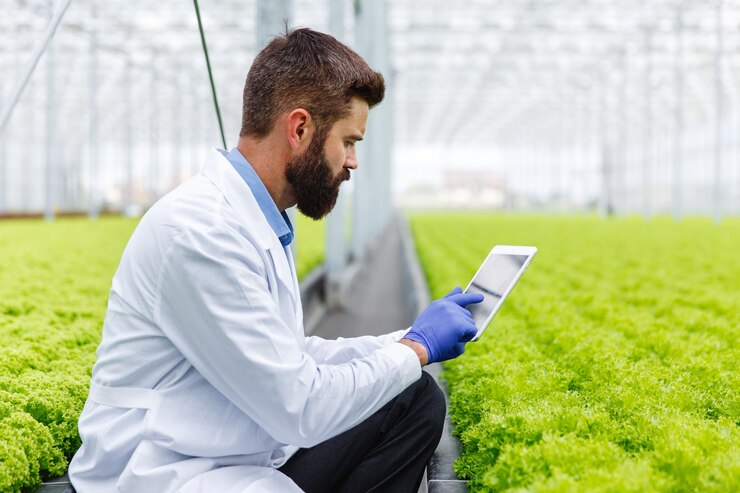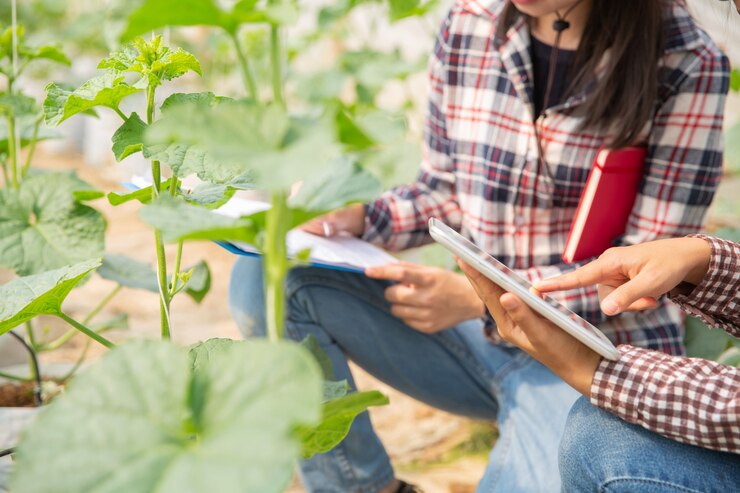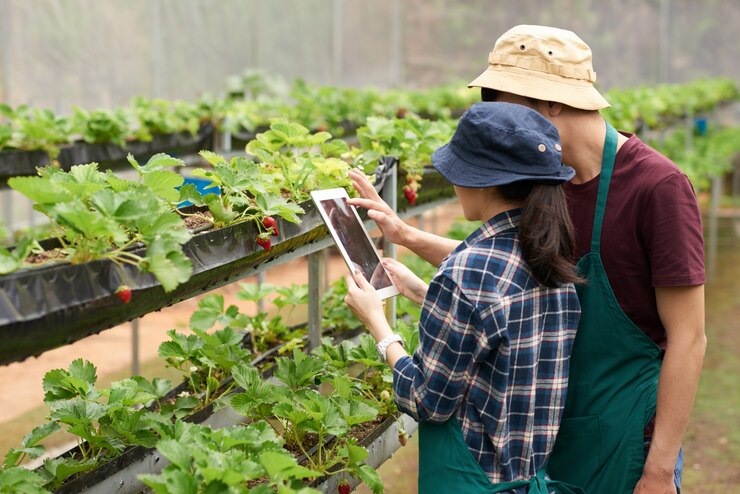Technology has become an essential part of modern farming, particularly in the pursuit of eco-friendly practices.Read More
One of the most significant technological advancements in eco-friendly farming is precision agriculture. This approach uses data analytics and technology to optimize field-level management regarding crop farming. By utilizing GPS, soil sensors, and satellite imagery, farmers can monitor crop health, moisture levels, and nutrient content more accurately. This data-driven approach allows them to apply fertilizers and pesticides precisely when and where needed, reducing waste and minimizing chemical runoff into nearby ecosystems. The result is healthier crops and improved yields, all while maintaining environmental integrity. By integrating technology into their practices, farmers can achieve sustainable farming goals without sacrificing productivity. Another innovation reshaping eco-friendly farming is the use of drones and remote sensing technology. Drones can provide farmers with real-time aerial images of their fields, allowing for precise monitoring of crop health and growth patterns. This information helps identify issues such as pest infestations or nutrient deficiencies before they escalate. Additionally, drones can assist in planting seeds, applying fertilizers, and even monitoring irrigation systems, streamlining farm operations. By using drones, farmers can minimize labor costs while maximizing efficiency. This technological integration plays a crucial role in promoting sustainable practices in modern agriculture. Farmers can also use remote sensing technologies to analyze soil health and moisture levels. These tools enable farmers to make informed decisions about irrigation and crop management. As a result, they can conserve water and energy resources, reducing the overall environmental impact of farming operations. This commitment to sustainability is increasingly important as water scarcity becomes a pressing global issue. The Internet of Things (IoT) is revolutionizing how farmers approach eco-friendly practices. IoT devices, such as smart sensors and automated irrigation systems, enable farmers to monitor and manage their resources more efficiently. For instance, sensors can measure soil moisture levels, automatically adjusting irrigation schedules to ensure optimal water usage. This technology not only conserves water but also promotes healthy crop growth. Furthermore, IoT applications provide farmers with real-time data and insights, allowing them to make informed decisions that benefit both their operations and the environment. In addition to digital technologies, renewable energy sources play a vital role in eco-friendly farming. Solar panels and wind turbines can power farms, reducing reliance on fossil fuels. This transition to renewable energy helps lower greenhouse gas emissions and overall operational costs. Farmers who invest in renewable energy can enhance their sustainability efforts while also improving their bottom line. By harnessing clean energy, they contribute to a more sustainable agricultural system and set an example for others in the industry. The integration of renewable energy into farming practices can also facilitate energy independence. By generating their own power, farmers can reduce energy costs and ensure consistent energy availability, even during peak demand periods. This shift not only benefits the environment but also strengthens farm resilience in the face of changing market conditions. As the agricultural landscape continues to evolve, the role of technology in eco-friendly farming will only grow more significant. The increasing availability of innovative tools and practices will empower farmers to adopt sustainable methods that benefit both their operations and the environment. By embracing these advancements, they can meet the challenges posed by climate change and resource scarcity while ensuring food security for future generations. Continued investment in research and development will drive the creation of even more sustainable solutions, fostering a more resilient agricultural sector. In conclusion, technology plays a pivotal role in shaping modern eco-friendly farming practices. By leveraging precision agriculture, drones, IoT, and renewable energy sources, farmers can improve efficiency and sustainability. This commitment to eco-friendly practices is essential for meeting the needs of a growing population while protecting the planet for future generations.Precision Agriculture for Sustainable Yields
Drones and Remote Sensing
IoT and Smart Farming
Renewable Energy Sources
Future Outlook for Eco-Friendly Farming
The Role of Technology in Modern Eco-Friendly Farming
Technology has become an essential part of modern farming, particularly in the pursuit of eco-friendly practices.Read More






